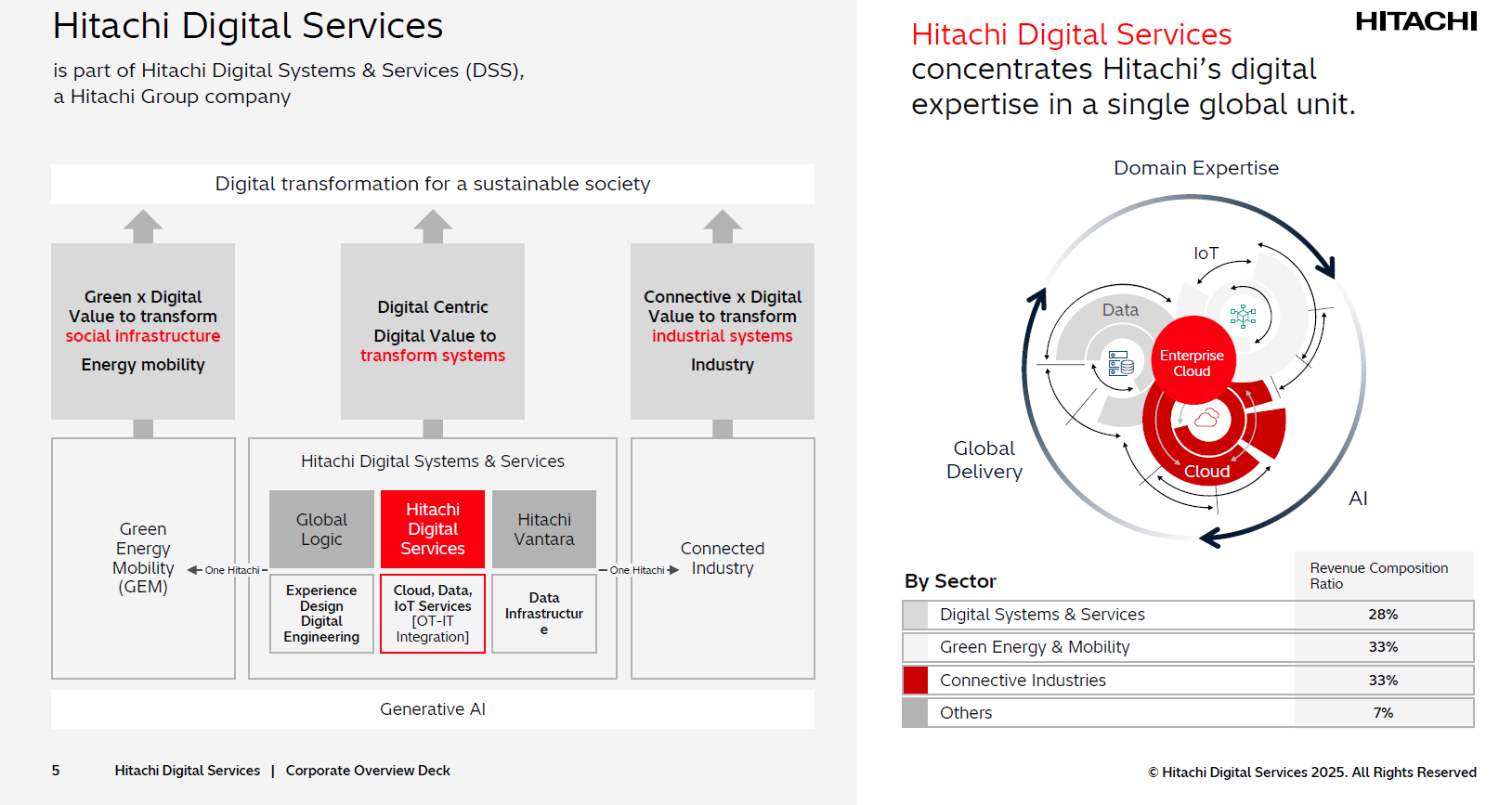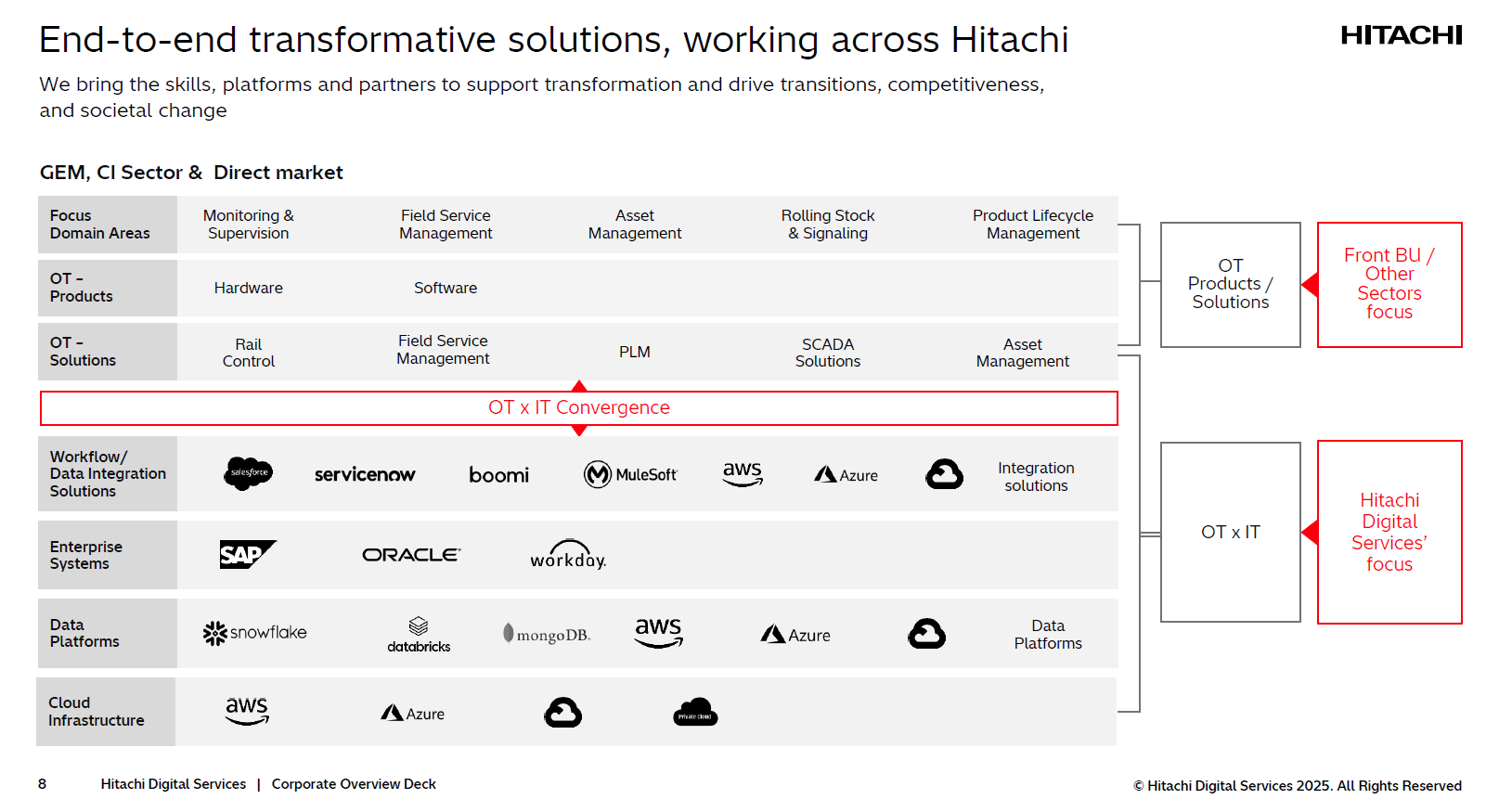Hitachi Digital Services CEO Lvin on AI transformation, operations technology and use cases
Hitachi Digital Services CEO Roger Lvin said the move to AI agents will feature more transformation in a shorter amount of time than cloud computing due to "the reinvention of processes and applications from scratch." Lvin also talked about talent in the AI era, R&D, operations technology and IT convergence and the need for domain knowledge in AI use cases.
Lvin spoke at Hitachi Digital Services' US Analyst and Advisor Day. Hitachi Digital Services is part of Hitachi Group's Digital Systems & Services division.

Here's a look at the takeaways from Lvin's talk:
Agentic AI's real impact. Lvin said agentic AI is "a real movement" that will have an impact that's overlooked. "Agentic AI will allow us to skip what we had gone through with cloud," said Lvin. He noted that the cloud had two phases. First, there was migration which was largely successful. The second was implementation and returns, which didn't deliver the savings expected for many. The cloud led to a lot of brown field implementations that revolved around retooling existing systems and processes. Agentic AI will feature more green field implementations because there won't be a lift and shift progression.
"With agentic AI, you're going to see a significant movement towards modernization in a green field type of manner. I think you're going to see a lot of reinvention of processes and applications from scratch because of the new approaches. I think that will come about a year from now."
Your data will never be perfect enough. Lvin said it's a mistake to think you have to have your data house completely in order before taking on AI use cases. He said:
"For AI, obviously, you need data. If you don't have data, you are dead in the water. But I think a lot of the companies two years ago were stuck in the in their horizontal proof of concept hell. I think a lot of companies are now stuck there because they think their data has to be perfect before they go on this AI journey.
I've changed my own perspective that, and I believe that that's kind of nonsense now, because data will never be perfect. It's never been perfect 10 years from now, it's not perfect now, and we can all be certain that it's not going to be perfect 10 years from now. It's like talent. The best organizations didn't have enough talent 10 years ago, and probably will not have enough talent 20 years from now. The important thing about data is that you have to advance these programs simultaneously. You can't wait for perfection in one swim lane before you take on the second because otherwise you will be in the proof of concept forever."
AI talent. Lvin said the primary issue is that AI requires multiple skills and knowledge including domain knowhow, physics mathematics and experts in horizontal technology. "I don't think that'll change and I don't know if the US is particularly great at teaching those skills. We're good at training those skills, but not necessarily the best at keeping them within the country," said Lvin. "You're going to look for engineering skills, but you're also going to look for domain skills, which we're not going to have enough of."
Mission critical systems. Hitachi Digital Systems runs systems for the likes of Japan Rail, major automotive companies and transaction systems behind the scenes. Lvin said the secret sauce is to run mission critical applications, infuse Japanese quality and process knowhow and new innovations. "These mission critical systems can't go down and they have real-life implications when they do now work," said Lvin.
R&D. Lvin said Hitachi spends $3 billion each year on R&D with a focus on asset heavy and asset light industries. That expertise resonates with enterprises with mission critical systems. "My pitch to engineers that we bring in is that if you want to be a good consultant there are plenty of good companies out there. If you want to be hardcore engineer, this is a place for you to be," said Lvin.
ERP. "We're seeing a huge resurgence in SAP, particularly in the midmarket," said Lvin. "There has been a little bit of a walk back from developing the latest, greatest and coolest UI. Customers are saying let me focus on the core systems and reduce the technology debt."
Operations technology (OT) and security. "SecOps have been around a long time, but the mission of protecting OT is lagging significantly behind," said Lvin, who said enterprises are starting to catch up with OT security.
OT and IT convergence. Lvin said OT and IT are converging because physical infrastructure is going digital.
"A train is used to be four wheels, four walls, a big engine with a black box like you get on an airplane. Today, the train has over 40,000 sensors that are reading the condition of the track. They're reading what's happening with the weather and everything happening with the train. What is new in that example is actually AI on the edge. Hitachi has worked on advanced computing with Nvidia. Now there is a card that sits inside the train, reads the data in real-time from the sensors and now we know more due to things like computer vision."
Use cases. Lvin said Hitachi likes to partner with customers on AI use cases. "The difficulty today is finding the real use cases. How do you bring the application into the real world," said Lvin. He added that the art of finding the right AI use case is about domain and industry knowledge, technical skill and returns.


